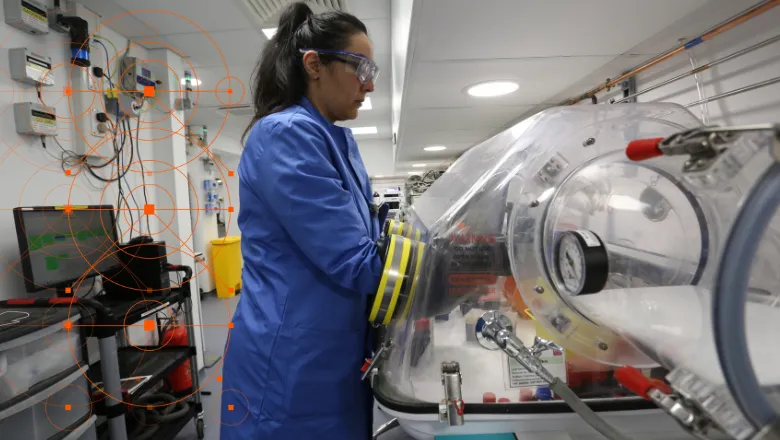We are excited to be involved with three of the ten projects funded and leading on one, exemplifying King's College London's major contribution to the nuclear medicine landscape in the UK. We will develop methodologies that will enable a wide range of preclinical studies and translation to clinical trials. Additionally, this win is synergetic to the university's recent success in preparing the latest Total Body PET technology. We are excited and motivated to be able to support Dr Gaze in providing high-sensitivity scanning for neuroblastoma in children, which would not be possible without the supply of Iodine-124.
Professor Stephen Archibald, Project Lead and Head of the Department of Imaging Chemistry & Biology at the School of Biomedical Engineering & Imaging Sciences
14 November 2023
King's researchers win government funding for UK's new production of essential radioactive material
Researchers from the School of Biomedical Engineering & Imaging Sciences have been awarded £459,386 in funding from the Department of Energy Security & Net Zero's Medical Radionuclide Innovation Programme (MRIP) to produce the radionuclide Iodine-124 at scale in the UK.

Iodine-124 is a radioactive element that is an important starting material for the production of radioactive drugs. The project led by King's researchers will allow for the development of I-124 radiotracers that can be used for Positron Emission Tomography (PET) scans.
The project has been initiated in collaboration with the University of Birmingham. "Currently, we do not have a facility to produce I-124 in the UK, and the main overseas supplier stopped making this product in 2019. Our project aims to change this- the high-energy cyclotron at the University of Birmingham will be used to produce the Iodine-124, which will then be sent to the Cyclotron and Radiochemistry Laboratory (CARL) facilities at King's. Here, it will be purified to the high-quality levels required for use in clinical trials," said Dr Jennifer Young, Research Fellow at the School.
A much-anticipated development following this project will be the use of Iodine-124 for personalised treatment of children with cancer neuroblastoma. Before the supply of I-124 became restricted in the UK, a Phase 1 clinical trial was conducted by Dr Mark Gaze at University College Hospital and the Great Ormond Street Hospital for Children, which showed that scans for neuroblastoma that used this radiotracer produced higher-resolution images compared to traditional scanning methods. With a renewed supply of I-124, this trial will be able to progress to further stages. According to Dr Young, "In future trials, it may be possible to use the initial scan to adapt the treatment for each child, giving them the best chance for a good outcome".
Award winners for the MRIP were announced at the Royal Society of Chemistry's 'Radionuclide Production in the UK' event, hosted by King's, which was attended by representatives from academia, government, commerce, national laboratories and the NHS.
The project aims to develop the process of Iodine-124 with the University of Birmingham by March 2025. If successful, it would then enable Dr Gaze's Phase 2 trial to go ahead by the end of 2025, utilising the university's incoming Total Body PET scanners at St Thomas' Hospital.
